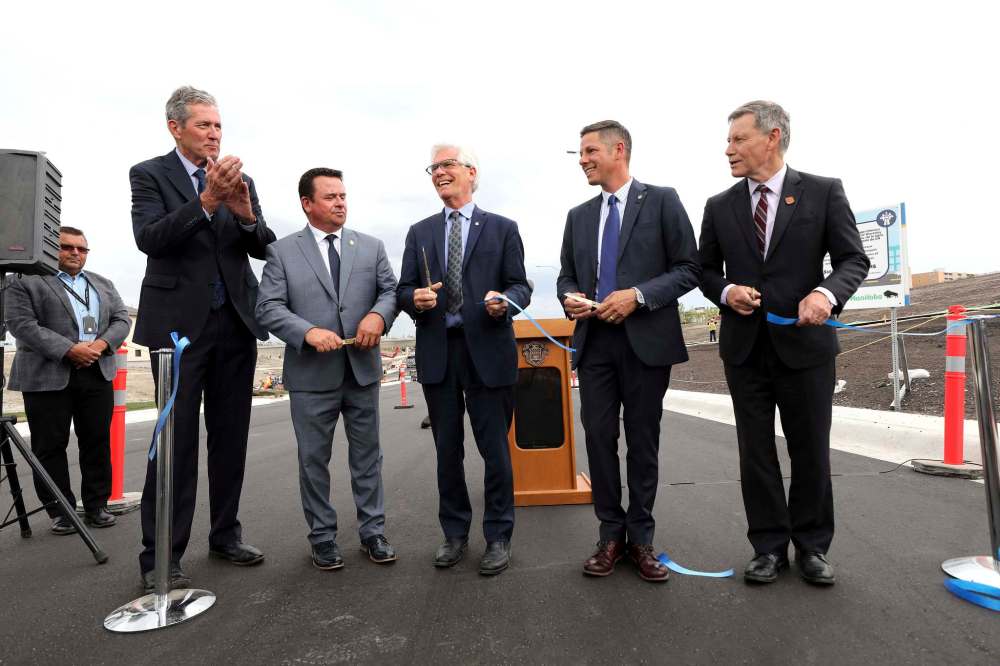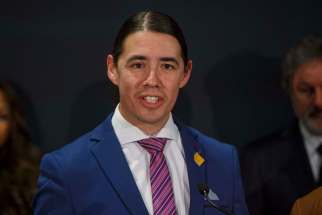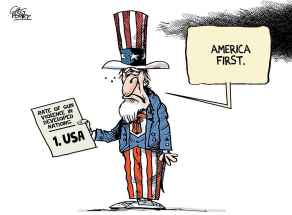Premier knows his way around blackout law
Read this article for free:
or
Already have an account? Log in here »
To continue reading, please subscribe:
Monthly Digital Subscription
$0 for the first 4 weeks*
- Enjoy unlimited reading on winnipegfreepress.com
- Read the E-Edition, our digital replica newspaper
- Access News Break, our award-winning app
- Play interactive puzzles
*No charge for 4 weeks then price increases to the regular rate of $19.00 plus GST every four weeks. Offer available to new and qualified returning subscribers only. Cancel any time.
Monthly Digital Subscription
$4.75/week*
- Enjoy unlimited reading on winnipegfreepress.com
- Read the E-Edition, our digital replica newspaper
- Access News Break, our award-winning app
- Play interactive puzzles
*Billed as $19 plus GST every four weeks. Cancel any time.
To continue reading, please subscribe:
Add Free Press access to your Brandon Sun subscription for only an additional
$1 for the first 4 weeks*
*Your next subscription payment will increase by $1.00 and you will be charged $16.99 plus GST for four weeks. After four weeks, your payment will increase to $23.99 plus GST every four weeks.
Read unlimited articles for free today:
or
Already have an account? Log in here »
Hey there, time traveller!
This article was published 08/08/2019 (2320 days ago), so information in it may no longer be current.
You can bet the outcome of the upcoming provincial election that Premier Brian Pallister knew full well he was breaking the rules when he arrived at the soon-to-be-opened Waverley underpass earlier this week to participate in a ribbon-cutting ceremony.
As he strode along the pristine, charcoal-grey asphalt that now stretches under the CN mainline near Taylor Avenue, he was fully aware that we are just about to drop a writ for a Sept. 10 election.
He would have also known that, as a result of his decision to call this early election, a 90-day blackout on government communication was still in place.
Pallister would also have known that, during the blackout, there can be no government advertising, announcements or unsolicited comments from any elected official or bureaucrat on anything related to a government program, investment, initiative or policy.

There are some exceptions for extraordinary situations — natural disasters, public health emergencies — but in general the law has been interpreted to mean a complete cessation of government communications.
How could he have thought that very law he triggered with his decision to call an election would still allow him to share a lectern with officials fcrom the municipal and federal governments to remind citizens of the taxpayer resources that had been invested in this project?
Pallister tried to justify his actions. The Tories released a statement from Fred Meier, the clerk of the executive council, which claimed that he and government lawyers examined the circumstances of the Waverley event and decided it was permissible.
However, that statement was provided by email, with no opportunity to get Meier or any other informed official to explain the rationale.
The obvious fact of the matter is that the premier fully and completely knew he was breaking the law, and he didn’t care. We know that because in his comments to journalists the next day, he provided a full confession.
“I simply joined with our colleagues in the City of Winnipeg and the federal government, at their invitation, to share in the celebration of opening a project that we worked on together for some time,” Pallister said, ignoring the fact that the very scenario he described is forbidden by the blackout law.
The obvious fact of the matter is that the premier fully and completely knew he was breaking the law, and he didn’t care. We know that because in his comments to journalists the next day, he provided a full confession.
At the risk of being accused of justifying what Pallister did this week, it must be noted that the blackout provisions are absurd.
What the law says
From the Election Financing Act, Section 92 – Restrictions on Government Advertising
(1) — Restrictions for general elections and by-elections
During the following periods, a government department or Crown agency must not advertise or publish any information about its programs or activities:
(a) in the last 90 days before election day and on election day, in the case of a fixed date election,
(b) in the election period, in the case of a by-election or a general election that is not a fixed date election.
From the Election Financing Act, Section 92 – Restrictions on Government Advertising
(1) — Restrictions for general elections and by-elections
During the following periods, a government department or Crown agency must not advertise or publish any information about its programs or activities:
(a) in the last 90 days before election day and on election day, in the case of a fixed date election,
(b) in the election period, in the case of a by-election or a general election that is not a fixed date election.
(2) — Exceptions
Subsection (1) does not apply to an advertisement or a publication:
(a) that is required by law,
(b) that is required at that time
(i) to solicit proposals or tenders for contracts or applications for employment with a government department or Crown agency, or
(ii) because it relates to important matters of public health or safety,
(c) that, in the case of a Crown agency, is in continuation of earlier advertisements or publications and is required at that time for ongoing programs of the agency, or
(d) that, during the election period of a by-election,
(i) is in continuation of earlier publications or advertisements and is required for ongoing programs of a government department, or
(ii) deals with a matter before the Assembly during the election period of a by-election, such as the throne speech, the budget, the introduction or passage of a bill or an order or resolution of the Assembly.
For example, if Pallister had not attended the ribbon cutting, but was asked later in the day by a journalist to comment on the upcoming opening of the underpass, he could have spoken at length about his government’s investment.
Even without being asked, it’s conceivable he could have cited the Waverley project in a stump speech in some other area of the city and remained on the right side of the law.
But what he clearly cannot do is attend an official event, held expressly for the benefit of news media, where elected officials from other levels of government are claiming credit for an infrastructure project. As muddy as this law can be at times, there is no ambiguity on this point.
There is also no ambiguity about the fact in shattering the blackout this week, Pallister is only following in the footsteps of the previous NDP government, which frequently and deliberately violated the blackout provisions it created as part of an overhaul of election laws.
Like in August 2011, when NDP cabinet minister Ron Lemieux travelled to Landmark during the pre-writ blackout period to deliver a cheque for improvements to a local park. At a cheque-presentation event held in conjunction with a community festival, Lemieux spoke briefly, and posed for pictures that were later published in the local media.
Or when two NDP cabinet ministers gave journalists a tour of a soon-to-be-opened birthing centre in St. Boniface during the same blackout period in which Lemieux delivered his cheque.
In those instances, the NDP was found to be guilty of violating the blackout provisions but because the commissioner of elections found them to be inadvertent, no penalties were assessed. No harm, no foul, no consequences. There, in a nutshell, is the dilemma posed by a law that does have, at its core, some worthy intent.

Curbing the ability of a governing party to abuse taxpayer resources to get a political leg up on opposition parties is a worthy goal. Far too often, the party in power has been able to use its enormous resources to roll out advertising campaigns that are, both in spirit and intent, partisan.
The problem is that Manitoba’s blackout provisions are vague and imprecise. The province’s chief electoral officer has recommended new language that would make the law more precise and effective. To date, that new language has not been adopted.
However, the real question facing all Manitoba parties is whether they can collectively support the idea of harsher penalties for violations of the blackout. Without concrete consequences, political parties will be encouraged to continue deliberately breaching the blackout provisions.
A blackout law may be good public policy. But if it remains a law that politicians believe they can violate with impunity — as the current premier obviously believes — then it’s not worth having on the books.
dan.lett@freepress.mb.ca

Born and raised in and around Toronto, Dan Lett came to Winnipeg in 1986, less than a year out of journalism school with a lifelong dream to be a newspaper reporter.
Our newsroom depends on a growing audience of readers to power our journalism. If you are not a paid reader, please consider becoming a subscriber.
Our newsroom depends on its audience of readers to power our journalism. Thank you for your support.












